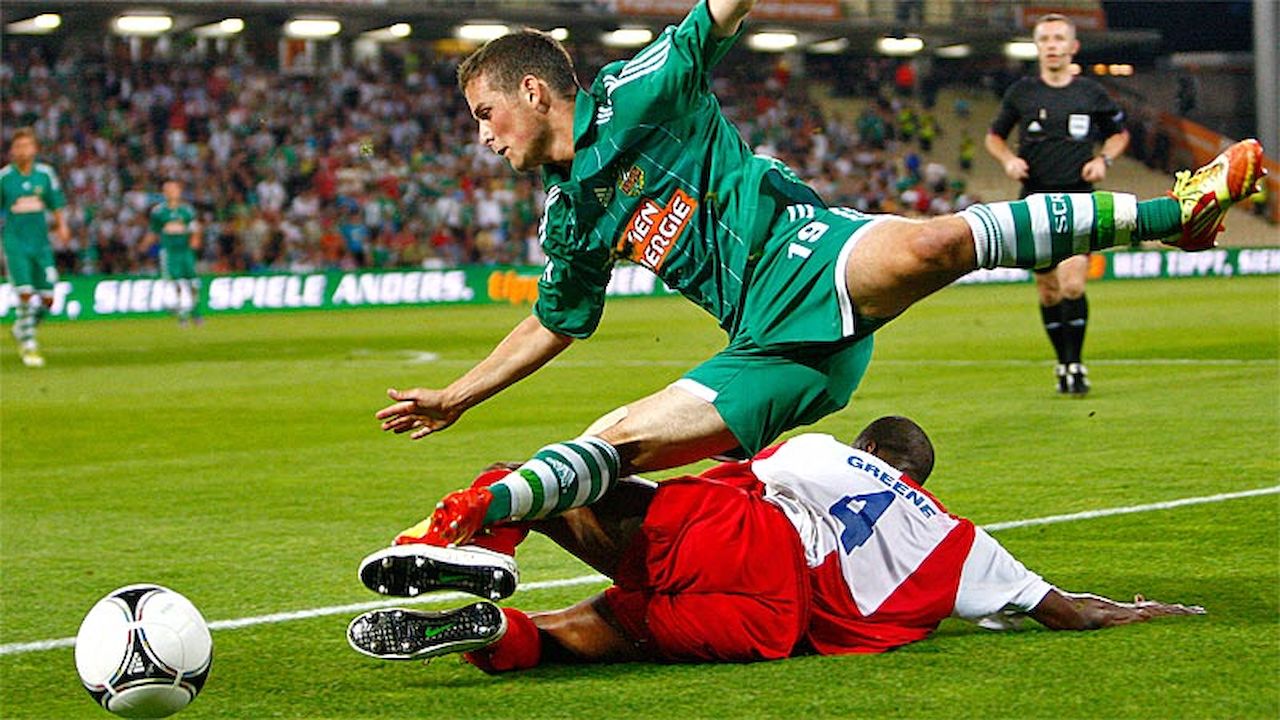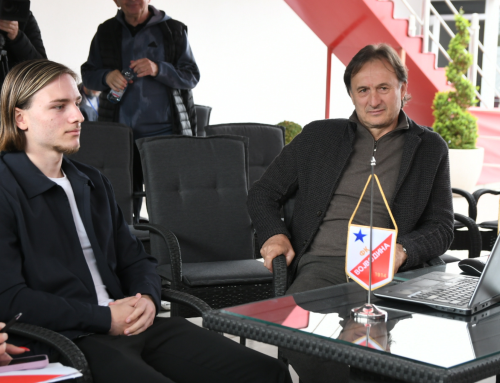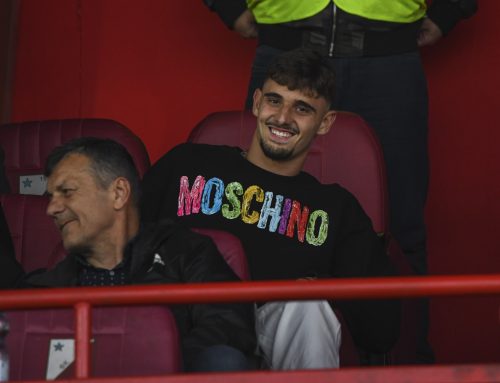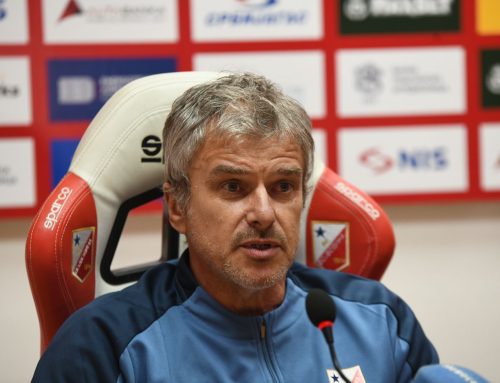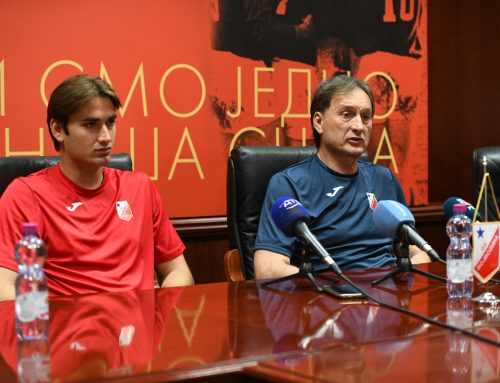On Thursday, at 7 pm, another page in the long and rich history of the Old Lady’s performance on the international stage will be written at Karađorđe. Ever since 1955 and the 4-1 victory over Roma in Novi Sad in the quarterfinals of the former Central European Cup, which made Voša the first team from the SFRY to beat an Italian club in a competitive match, red and white matches in Europe have always been with special attention, anticipation and hope followed by their fans and supporters.
The upcoming match against LASK will be the 172nd European appearance for the Old Lady in six different competitions in which she competed (European Champions Cup, UEFA Cup (Europa League), Inter-toto Cup, Central European Cup, Fair Cities Cup, Rapan cup). In the 171 games so far, Voša has met 22 times with Austrian teams and has a positive score against clubs from this country: 10 wins, six draws and six defeats, with a goal difference of 41:37.
The first time that happened was in the 1956/57 season, when, in the semifinals of the Central European Cup, the Old Lady aimed at Rapid Vienna. A 3-0 defeat and a 4-1 victory were enough for penalties, considering that then, just as is the case again this season, the rule of higher goal scoring away from home did not apply. Vojvodina went further after a better penalty shootout, after which it was stopped by the Hungarian Vasas in the final.
Exactly 10 years later, Voša played her best season in Europe, reaching the quarterfinals of the European Champions Cup, and her first rival on that path was Vienna’s Admira, who in the meantime moved from Vienna to Molding. In Vienna, Vojvodina won with a goal by Stevan Sekereš with the result 0-1, which, with a draw in the return match with the result 0-0, was enough to later compete with Atletico Madrid, and then with Celtic…
However, what most fans of Vojvodina remember much better are the duels against Austria and Rapid played in the last 12 years.
In the 2009/10 season, in the third round of qualifications for the Europa League, the draw connected Vojvodina with the Austrian team. Considering that the Karađorđe stadium did not meet the UEFA criteria for that phase of the competition, Voša welcomed Austria at the FC Red Star stadium in Belgrade. It was a team led by Dušan Tadić, Dragan Mrđa, Mario Đurovski, Miroslav Vulićević, Joseph Kizito, Željko Brkić… The coach of the team was Dragoslav Stepanović. On the other hand, the team of Austria included Aleksandar Dragović, Milenko Aćimović, Zlatko Junuzović… This team was led from the bench by coach Karl Daxbacher.
Despite a better game from the very beginning of the match and several created opportunities, Voša fell behind in the 38th minute, after Tomáš Jun brought Austria to the lead. Only seven minutes later, in the last moments of the first half, Mario Đurovski equalized with a great goal from a free kick, so with the result of 1-1, the teams went not only to a break, but also to a rematch in Vienna.
In the return match, Voša took the lead in the 31st minute. Naemeka Ajuru sent the ball into the penalty area, and Đurovski phenomenally let the ball to Mrđa, who accepted it and gave his team the advantage. However, in the last seconds of the first half, Tomáš Jun scored a goal for Austria again, so the teams were completely tied in the last 45 minutes of this duel.
In the second half, Voša took the lead again in the 58th minute thanks to a precise shot by Dušan Tadić, and it seemed then that the Old Lady was well on her way to eliminating a renowned opponent, who needed two goals in the last half hour to win.
However, after only five minutes, Emin Sulimani used a cross shot and equalized the result with his head, which still led Vojvodina to the next phase of the competition. However, in the 81st minute, Sulimani centered, and Momo Diabang was in the right place and headed the ball into the net.
In the last ten minutes, Voša made a real siege of Austria’s goal, and in the 91st minute, referee Oleg Oriekhov from Ukraine failed to call an obvious penalty for Vojvodina after Dragović touched the ball with his hand in his penalty area. Considering that Voša no longer had anything to lose, the goalkeeper Brkić also went to the attack, but in the counterattack in the last seconds of the match, Rubin Okotie used that and, running half the field with the ball, set the final 4-2.
An even bigger drama was seen three years later, when the balls in the draw in the third round of qualifications for the Europa League connected Vojvodina and Rapid. It is interesting that then, just as is the case this season, Vojvodina met with a Lithuanian club before the Austrian one, considering that it eliminated Suduva in the previous round (1-1, 4-0). The Old Lady has changed a lot during the previous three years, so Rapid was opposed by a team whose main players were Aboubakar Oumarou, Petar Škuletić, Miroslav Stevanović, Almami Moreira, Marko Poletanović, Đorđe Jokić, Igor Đurić, Miroslav Vulićević, etc., while the coach was Zlatomir Zagorčić.
The first match was played in Novi Sad, and although Rapid was the more dominant team for most of the game, Voša successfully resisted, and in the 75th minute, after a well-received ball and a shot by Oumarou, the Old Lady even took the lead. Just a few minutes later, referee Artom Kuchin from Kazakhstan, for reasons known only to him, called a penalty for Rapid, which still failed to use one of the players of the Vienna team.
After that, in the 94th minute, the already great atmosphere created by about 12,000 Vojvodina fans reached a boiling point – Voša took the lead with 2-0, after one of the most bizarre goals ever seen in European competitions. Namely, after he safely caught the ball after one cross, Rapid goalkeeper Lukas Königshofer threw it in front of him with the intention of shooting it, believing that all the players would head towards the center of the field. However, Milan Bojović made a great look and got to the ball, thus easily sending it to the net. However…
When it seemed that Voša reached the result of a dream before the return match, in the 96th minute, after a cross into the penalty area of Vojvodina, Deni Alar somehow caught the ball, and it, probably still no one knows how, ended up behind goalkeeper Nemanja Supić…
Regardless of everything, Voša went to Vienna with the advantage and faith that, just like back in 1957, she could knock Rapid out of further competition. About 800 fans of the Old Lady, who came to Vienna to support their team, believed the same. Although Rapid attacked fiercely from the beginning of the match, Vojvodina stopped all his attacks, and then, in the last minutes of the match, the referee took matters into his own hands again. This time, it was the Pole Robert Malek.
In the 84th minute, he first showed a red card to Vladan Pavlović, and then in the 91st minute he called a penalty for the host, causing anger and disbelief among the Vojvodina players with his extremely debatable and dubious decision. Alar took the penalty and scored another goal in this duel. In the remaining injury time, Vojvodina started a full offensive, but in the 98th minute, Terrence Boyd used it and in the counterattack set the final 2-0 for the hosts.
So, judging by the tradition from recent years, Voša and LASK are expecting two extremely difficult and exciting matches, and Vojvodina fans can only hope that this time the outcome of the matches will be influenced exclusively by the players of the two teams, and that luck, with which the Old Lady was dragged by Austria and Rapid, will this time be on the side of the team from Karađorđe.


